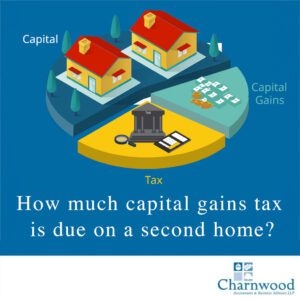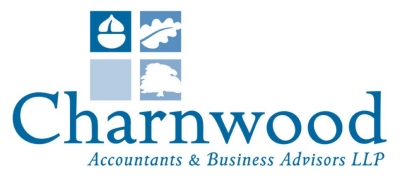
In April 2020, there were new requirements for the reporting of disposals of UK residential property, resulting in a change to the way capital gains are reported to HMRC. These new rules mainly affected landlords selling property, but this also applies to the sale of a second home. Previously where you would have reported these gains solely on a tax return, you are now required to report the gains on sale of property within 60 days of completion and pay the tax. This may mean that you are required to estimate the tax that is due if you are unsure as to what tax bracket you would fall into and so therefore, you would record the disposal on your tax return as well to give you an accurate calculation. You then treat the payment made within 60 days as a payment on account / tax credit to reduce the balance that is due. You will need to note the submission details on the return itself so that HMRC can match the 60 day CGT report with the final tax return.
How much capital gains tax you would need to pay out will depend on certain factors.
Below are some points to consider when working out your capital gains tax liabilities:
- For property, capital gains tax is set at 28% for higher rate taxpayers and 18% for basic rate taxpayers – this is the rate at which you will be taxed on the sale profits of your second home.
- If the property is not your main residence – you will be taxed on your gain, for example, the profit made on your sale.
- Increase in value – if the property has increased in value, for example, from £200,000 to £300,000, this would be seen as a gain. You would therefore be taxed on the £100,000 profit, minus certain costs and tax allowances (see below).
- Tax-free capital gains – in the current tax year 2022-2023, the threshold is £12,300 for making tax-free gains. If the profit arising from your second property does not exceed this figure, then you may not be liable for capital gains tax.
- Jointly owned property – the above allowance is per person therefore a couple could double their tax-free allowance to £24,600 and apply this to the sale profits.
- Stamp Duty, solicitor and estate agency fees – these amounts can be deducted from the profits of the sale, and the remaining profit would then be taxed.
- Private Residents Relief (PRR) – you might be able to reduce your overall capital gains tax bill if you lived in your second home as a main residence for a number of years. If you rented the property out for the past 9 months of ownership, you may also be able to reduce your tax liabilities.
- Gifting a second home – you will still be liable for capital gains tax if you gift – or transfer – your second property to another person. The tax liable will be determined by the market value instead of the sale price.
- Business use – you may be eligible for tax relief if the property is a business asset.
- Divorce settlement – you are likely to be eligible for capital gains tax where a second property has increased in value. The settlement will aim to achieve a fair outcome for both parties
If your second property is not in the UK but overseas, you may also have to pay tax in the country where you have made the gain. Although in essence this may result in you being taxed twice, you may be able to claim tax relief to offset these costs. For more information, read our previous blog – Reporting Capital Gains on UK Residential Property.
If you need advice on paying capital gains tax on the sale of a second property in the UK, please get in touch by emailing: accountants@charnwoodaccountants.co.uk
Sources:
